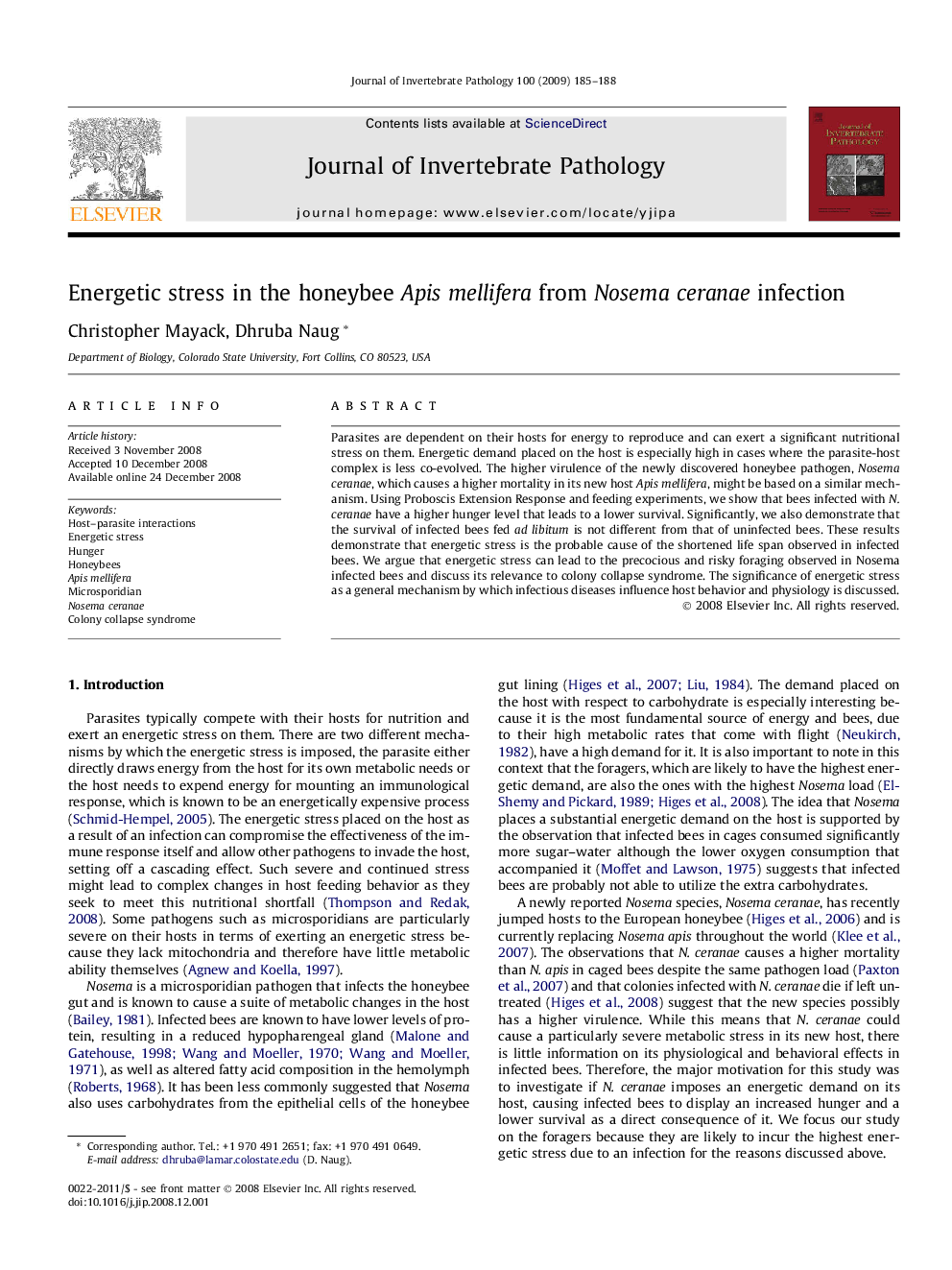| Article ID | Journal | Published Year | Pages | File Type |
|---|---|---|---|---|
| 6389890 | Journal of Invertebrate Pathology | 2009 | 4 Pages |
Parasites are dependent on their hosts for energy to reproduce and can exert a significant nutritional stress on them. Energetic demand placed on the host is especially high in cases where the parasite-host complex is less co-evolved. The higher virulence of the newly discovered honeybee pathogen, Nosema ceranae, which causes a higher mortality in its new host Apis mellifera, might be based on a similar mechanism. Using Proboscis Extension Response and feeding experiments, we show that bees infected with N. ceranae have a higher hunger level that leads to a lower survival. Significantly, we also demonstrate that the survival of infected bees fed ad libitum is not different from that of uninfected bees. These results demonstrate that energetic stress is the probable cause of the shortened life span observed in infected bees. We argue that energetic stress can lead to the precocious and risky foraging observed in Nosema infected bees and discuss its relevance to colony collapse syndrome. The significance of energetic stress as a general mechanism by which infectious diseases influence host behavior and physiology is discussed.
